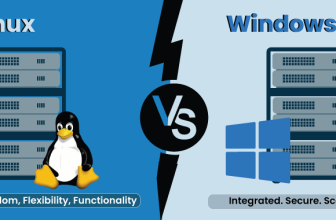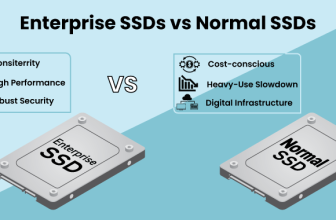
In this internet world, a website is the face of a business. There is a pile of options for users to choose among that can support their websites. And, dedicated servers and cloud servers definitely made their mark in the field
What is a Dedicated Hosting Server?
If an entire physical server is dedicated completely to one end-user for hosting their website, it is a dedicated hosting server. They offer all the server resources for the flawless functioning of the user website.
How Does it Work?
Users can buy or lease the dedicated servers from hosting service providers and customize the server with desired configurations that comply with their website functioning.
Advantages of Dedicated Hosting Servers
- Customization
You can customize the server however you need to support any kind of complex application. - Control
Users have complete control over the server and its resources to customize it whenever their business demands. - Performance
With all server resources at disposal, users can expect the optimum performance of their websites even in compelling environments. - Security
The storage database and file system remain private and secure at all costs. Only authorized personnel can access the data and files.
Disadvantages of Dedicated Hosting Servers
- Cost and maintenance
Dedicated hosting servers are quite pricey and expensive to maintain the hardware and infrastructure in the long run. - Occupancy
The servers take up a bunch of your office space and you have to make room for them for in-house storing as well. - Dependency
Dedicated hosting servers are entirely dependent on the IT team. Even the slightest mistake in server maintenance can risk your website uptime a lot.
What is a Cloud Hosting Server?
A server that is virtualized, making all its resources accessible to users remotely to host a website over a distributed network is nothing but a cloud hosting server. They are created on the dedicated server platform and then connect to perform specific tasks.
How Does it Work?
A virtual server hosts websites by spreading data over multiple machines to host a website in a protected environment. The cloud can be accessed remotely using cloud software.
Advantages of Cloud Hosting Servers
- Resources
Cloud hosting servers provide users with as many resources as they need and follow a pay-as-you-go method. - Scalability
Cloud servers offer users abundant memory, storage, and process power and allow users to scale up quickly whenever needed. - Availability
They guarantee uninterrupted availability at all times as they can easily transfer workflows to another machine in case of hardware failure. - Backups
You can backup data from anywhere at any time of the day with these cloud hosting servers.
Disadvantages of Cloud Hosting Servers
- Internet dependency
The cloud hosting servers are completely dependent on the internet. So, it is impossible to access the workflows if any net issues occur. - Third-party involvement
They are generally taken care of by hosting providers. So, technical support and data recovery can be affected by third-party involvement. - Security
Users store their business data on the cloud and hosting providers cannot have entire control over the cloud. So, the data is likely to be breached.
Which is the Best Choice for Running a Business?
Running a business depends on many factors and users have to consider all those factors before considering a hosting server as the best.
Key Takeaway
Just like the coin has two slides, both dedicated and cloud hosting servers have their pros and cons. Go through your choices and choose the server that suits your fiscal and website needs.







